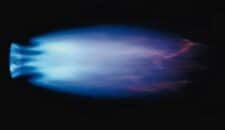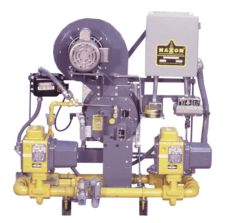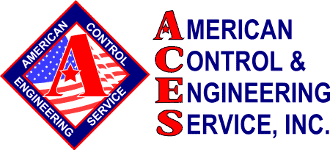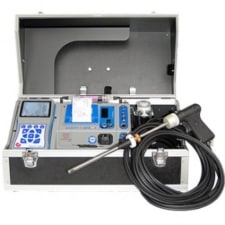
Emission Testing and Safety Checks
Since 2003 we’ve brought machinery all over the country into compliance with state and national standards — including the stringent codes of California — by testing and tuning for O2, CO2, and NOx as well as stack temperatures.

We strive to tune each burner and component to its best available level while maintaining a good burn, whether it’s fueled by natural gas, propane or diesel. In addition to burners, we’ll test and optimize gas regulators, gas valves, ignitors, modulation motors for air and gas, and other standard maintenance items.
Routine Safety Checks should happen once a year regardless of the size of your equipment. While you might not think about tuning brand new equipment — a safety check must be part of any commissioning process. Every time we install a new piece of equipment, we don’t leave the premises without performing a safety check and making any necessary adjustments for secure and efficient functioning.
Achieving Optimal Performance
Think of your oven, furnace or other heat treat equipment like a high-performance vehicle that needs regular tune-ups to keep it running at peak efficiency. From steam generators in the oil field to forging ovens at a foundry to paint-drying ovens in an aerospace factory, make ACES your tuning and emissions testing pit crew for lean, clean-burning machines.
Since 2003 we’ve brought machinery all over the country into compliance with state and national standards. For example, a high exhaust stack temperature indicates a waste of energy, and is an opportunity to modify the burners to recapture more of the heat, conserving both natural resources and your gas bill.
We strive to tune each burner and component to its best available level while maintaining a good burn, whether it’s fueled by natural gas, propane or diesel. In addition to burners, we’ll test and optimize gas regulators, gas valves, ignitors, modulation motors for air and gas, and other standard maintenance items.
Not Only Routine Maintenance
But we don’t just do the standard tests and tuning — our technicians are also trained as skilled troubleshooters, who think outside the heat-treat box when it comes to optimizing your machinery. For example, a recent client had cut back on production, making their burner too powerful for the current process. We swapped it out for a smaller burner more in proportion with the client’s needs, which streamlined efficiency and decreased emissions.
In addition to qualified personnel, as the dealer for Ecom emissions analyzers in Kansas, our precisely calibrated equipment will ensure yours is tuned as accurately as possible — in fact, we’re the ones who test the instruments that do the testing.
Better Mileage for all Your Equipment
We recommend tuning and emissions testing every one to two years, depending on the industry and EPA regulations.
A written report is required by the EPA, and the ACES Emission Analysis Report will satisfy that requirement while providing you with a detailed before-and-after picture of equipment emissions, turning invisible gasses into concrete black and white figures showing where you were, and where you’re heading — quite possibly into lower gas bills and fewer headaches.
Keep your equipment purring like a kitten. Call ACES for an estimate on tuning and emissions testing — we’ve got you covered.
Industries
- Heating and oil
- Foundries
- Food and beverage processing
- Aerospace manufacturing
- Uniform cleaning
- Industrial heat-treat for metals or composites
- Any industry requiring a gas burner
Areas of Expertise
- Combustion optimization
- Emissions tuning
- Inspection services
- Measuring O2, CO2, NOx and stack temperature
- Tuning to best available level while maintaining a good burn
- Troubleshooting and resolving any unexpected issues that arise
- Upgrading components for compliance
- Tailoring components to meet changing needs
What is the Number One Cause of Accidents?
According to Combustion Safety website, the number one cause of combustion related accidents are “human error and poor maintenance.” They give several examples of potentially explosive scenarios, such as valves leaking unburned fuel downstream to accumulate in firing chambers — not to mention incorrect purge times, miscalculated fuel-to-air ratios and burner capacity discrepancies.
Trained in National Standards and Codes
These are all items that ACES inspects during safety checks of ovens, furnaces and other heat-treat equipment. Our technicians receive ongoing training in industry codes and standards such as FPA-86 and NFPA 70, 79, 86, etc. In addition to the components listed above, our safety checks cover burners, valves, gas trains, solenoids, pressure transmitters, pressure switches, process control equipment, process temperature equipment, high limit instruments, air flow, interlocks and more.

This Maxon 435 OVENPAK® Gas Burner System includes some of the elements that ACES reviews in a safety check: combustion blower, burner assembly, ignition transformer, igniter, safety valves, regulator, modulation valve and regulator. We are also a Maxon dealer and OEM.
Regulations call for safety checks, typically once a year, depending on the size of the burner. And — while you might not think about tuning brand new equipment — a safety check must be part of any commissioning process. Every time we install a new piece of equipment, we don’t leave the premises without performing a safety check, and making any necessary adjustments for secure and efficient functioning.
The Case of the Missing Testing Ports
One of our technicians was conducting safety checks on a bake-off oven, and when he looked for the testing ports to connect his measuring equipment, there weren’t any. Sometimes companies sell equipment at a reduced price, but skimp on essentials like testing ports. This particular oven was 20 years old, which means safety checks had never been done since the initial installment.
The tech had to dismantle some piping and install testing ports before he could complete the safety check, which revealed leaking gas valves, and faulty pressure switches, resulting in pressure that was too high or low. The company could have been fined for violations, or worse, provoked an accident resulting in irreversible damage to their plant, products and personnel. To see more stories about what happens when the start-up or commissioning process isn’t properly completed, go here.
For machinery that works simply, efficiently and securely, give ACES a call to schedule your annual safety checks today.
To see more stories about what happens when the start-up or commissioning process isn’t properly completed, go here. CSI Blog

